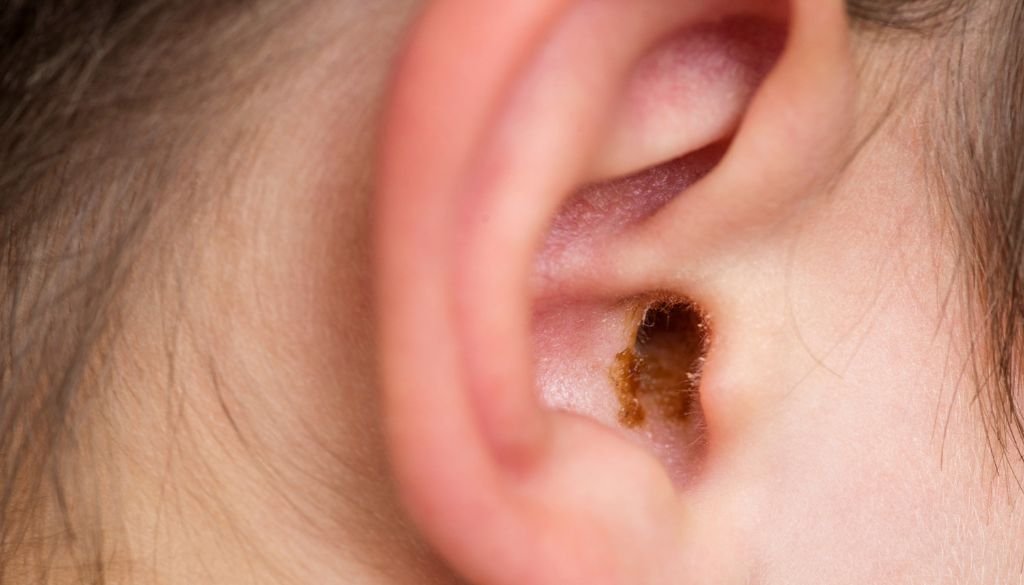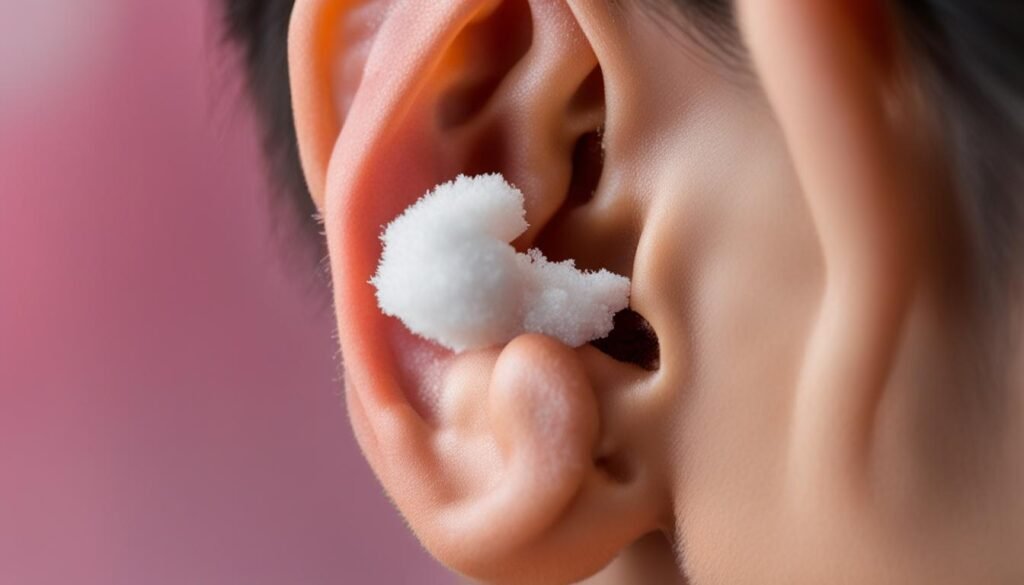Will my tinnitus go away after removing ear wax? This question is common among those experiencing tinnitus, a condition characterized by persistent ringing or buzzing in the ears. Tinnitus can have several causes, with ear wax buildup being frequent. In this article, we discuss the connection between ear wax and tinnitus. We’ll examine how effective ear wax removal can be in relieving tinnitus, highlight the importance of professional assistance, and address situations where further evaluation might be necessary.

Key Takeaways:
- Removing ear wax can alleviate tinnitus if a blockage causes it.
- Consult a doctor to determine the underlying cause of tinnitus and develop an appropriate treatment plan.
- At-home remedies for ear wax removal are not recommended.
- Professional methods such as micro suction and irrigation are safer and more effective.
- If tinnitus persists after ear wax removal, further evaluation may be necessary.
The Relationship Between Ear Wax and Tinnitus
Ear wax, also known as cerumen, protects the ear canal. However, when ear wax becomes excessive or impacted, it can contribute to the development of tinnitus. Tinnitus caused by excessive ear wax can lead to symptoms such as earaches, congestion, discharge, and even odors.
It is crucial to seek professional help to remove ear wax, as at-home methods can be ineffective and potentially dangerous. Cotton swabs or ear candles can push the ear wax further into the ear canal, worsening tinnitus symptoms. Instead, it is recommended to consult a healthcare professional who can safely and correctly remove the excess ear wax.
By removing the built-up ear wax, individuals may experience relief from tinnitus if the ear wax is the underlying cause. Professional methods like micro suction or irrigation are considered safer and more effective for ear wax removal. These methods are performed by trained healthcare professionals who can ensure the proper disposal of ear wax without causing harm to the ear canal.
The Impact of Ear Wax on Tinnitus
Excessive ear wax can block the ear canal, disrupting the natural flow of sound and leading to the perception of tinnitus. The presence of ear wax can also cause inflammation and irritation in the ear, exacerbating tinnitus symptoms. Individuals may find relief from their symptoms by addressing the root cause of tinnitus, which in some cases is excessive ear wax.
According to Dr. Smith, an audiologist at XYZ Clinic, “Ear wax blockage can have a significant impact on tinnitus. By removing the excess ear wax, we can often alleviate the symptoms and provide relief for individuals experiencing tinnitus.”
It is important to note that while removing ear wax can relieve tinnitus caused by ear wax blockage, not all cases of tinnitus are solely due to ear wax. Suppose tinnitus persists even after removing ear wax. In that case, it is recommended to seek further evaluation from a healthcare professional to determine other potential underlying causes and appropriate treatment options.
Tinnitus Relief and Proper Ear Wax Removal
Removing the ear wax can provide relief if a doctor diagnoses ear wax blockage as the cause of tinnitus. However, it is crucial to have the ear wax removed safely and correctly by a healthcare professional. Self-cleaning methods such as cotton swabs or ear candles should be avoided, as they can push the ear wax further into the ear canal and worsen tinnitus. Using ear drops or undergoing professional ear wax removal procedures like micro suction or irrigation can help alleviate tinnitus symptoms caused by ear wax blockage.
Read Also: Can syphilis cause hearing loss
Professional ear wax removal is recommended to safely and effectively remove excess ear wax. Doctors and audiologists are trained to use methods like micro suction and irrigation to remove ear wax without causing further harm to the ear canal. At-home methods and devices should be avoided, as they can be easily misused and may worsen tinnitus symptoms.
Following professional ear wax removal, tinnitus caused by ear wax blockage should subside, providing relief for the patient.
The Importance of Professional Ear Wax Removal
Professional ear wax removal is paramount when addressing tinnitus caused by ear wax blockage. While trying at-home remedies or devices may be tempting, these can often do more harm than good. Doctors and audiologists are trained to remove excess ear wax safely and effectively using methods like micro suction and irrigation.
Self-cleaning methods, such as cotton swabs or ear candles, can push the ear wax further into the ear canal, exacerbating tinnitus symptoms. Professional ear wax removal ensures the proper disposal of the ear wax and minimizes the risk of further damage to the ear canal.

By relying on the expertise of healthcare professionals, individuals can experience relief from tinnitus symptoms caused by ear wax blockage. After removing excess ear wax, patients often find a reduction in the intensity and frequency of their tinnitus. This relief can significantly improve their overall quality of life and well-being.
Benefits of professional ear wax removal:
- Safe and effective removal of excess ear wax
- Minimizes the risk of further damage to the ear canal
- Reduces the intensity and frequency of tinnitus symptoms
- Improves overall quality of life and well-being
It is essential for individuals experiencing tinnitus to seek professional help for proper evaluation and treatment. While ear wax removal can relieve some cases, persistent tinnitus may indicate underlying issues that require further evaluation by an audiologist or healthcare professional.
When to Seek Further Evaluation for Tinnitus
While removing ear wax can alleviate tinnitus, there are cases where the condition persists even after the wax has been removed. In such instances, it is crucial to seek further evaluation from an audiologist or healthcare professional to determine the underlying cause of the tinnitus and develop an appropriate treatment plan.
Tinnitus can have various causes, including age-related hearing loss, exposure to loud noises, medications, or underlying health conditions. It is essential to understand that tinnitus caused by excessive ear wax is just one possible factor. The audiologist can pinpoint the root cause by conducting a comprehensive assessment and recommend the most suitable treatment options for tinnitus relief.
Can high cholesterol cause tinnitus? Discover the intricacies of ‘can high cholesterol cause tinnitus’ in our detailed exploration, examining the potential link between cholesterol levels and auditory health.
These treatment options may include hearing aids, which can help mask tinnitus sounds and improve overall hearing. Tinnitus retraining therapy, a form of cognitive behavioral therapy, can also be beneficial for managing the condition. Lifestyle modifications like stress reduction techniques and avoiding triggers like loud noises or certain foods may help alleviate tinnitus symptoms.
Seeking further evaluation from an audiologist is essential to ensure tinnitus is adequately addressed and managed. Each individual’s experience with tinnitus is unique, and the appropriate treatment will depend on the underlying cause. By working with a healthcare professional, you can find the most effective strategies to minimize the impact of tinnitus on your daily life.
Conclusion
Removing ear wax can provide relief for tinnitus caused by ear wax blockage. However, it is essential to consult a healthcare professional for proper evaluation and treatment. Tinnitus can have various underlying causes, and addressing the root cause is crucial for long-term relief.
Professional ear wax removal methods, such as micro suction or irrigation, are recommended over at-home remedies to ensure safety and effectiveness. Seeking the assistance of a trained healthcare professional reduces the risk of worsening tinnitus symptoms and potential damage to the ear canal.
If tinnitus persists even after ear wax removal, it is advisable to consult an audiologist for further evaluation. They can help determine the most appropriate treatment options for tinnitus relief. Everyone’s experience with tinnitus may vary, and personalized care and treatment plans are essential for optimal results.
Frequently Asked Questions
Will removing ear wax alleviate tinnitus?
If an ear wax blockage causes tinnitus, removing the wax can provide relief. However, it is essential to consult a healthcare professional for safe and effective ear wax removal.
Can ear wax removal cure tinnitus?
Ear wax removal can alleviate tinnitus symptoms if the wax is the underlying cause. However, tinnitus can have various reasons, so further evaluation and treatment may be necessary.
How can ear wax cause tinnitus?
Excessive ear wax can block the ear canal and cause tinnitus. The symptoms can include earaches, congestion, discharge, and odors. Seeking professional help for ear wax removal is recommended.
How should I remove ear wax at home?
At-home methods such as cotton swabs or ear candles are not recommended, as they can push the wax further into the ear and worsen tinnitus. It is best to consult a healthcare professional for safe and effective ear wax removal.
When should I seek further evaluation for tinnitus?
If tinnitus persists even after ear wax removal, it is essential to consult an audiologist or healthcare professional for further evaluation. They can determine the underlying cause of tinnitus and recommend appropriate treatment options.
Will my tinnitus go away after removing ear wax?
If ear wax is the underlying cause of tinnitus, removing the wax can provide relief. However, tinnitus can have various reasons, so it is essential to consult a healthcare professional for proper evaluation and treatment.



